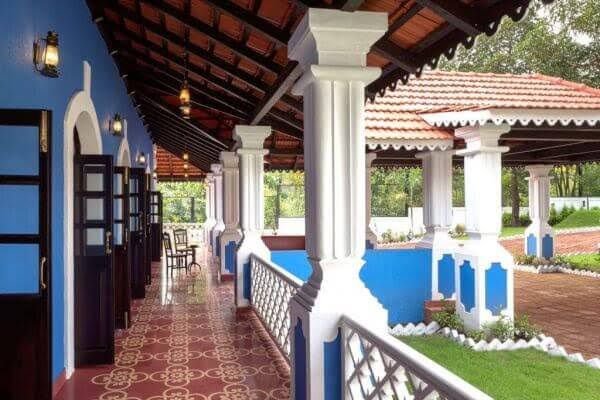Goa’s focus on ‘Homestay’ and ‘Caravan Home’ a new avenue for startups

Just last month I was speaking to a learned senior citizen in the Chinchinim village of Velim, who had a sprawling old Portuguese-style home and we were casually discussing on the potential of the ‘homestay’ business and its ecosensitive nature of the business – by eco-sensitive, I mean, ecologically and economically sensitive. He was excited to learn that the government has on cards a new homestay policy and was eager to be a part of the initiative of the Goa government, when the policy is put in place.
Now, with the decision of the Goa government on homestays and caravan homes, I would need to pay him a joyous visit.
The decision of the Chief Minister of Goa Dr Pramod Sawant and Tourism Minister Rohan Khaunte to put in place a Home Stay and Caravan policy aimed at attracting tourists beyond the beaches to explore the state and boost the income of the local people is a progressive and much-needed idea for Goa.
Homestays are not new to Goa but it never got the much-needed attention or support, as it now has with this government. Caravan Homes, on the otherhand is an encouraging concept to introduce to Goa.
Goa is a vibrant and growing global tourism destination. Goa is popular because of its beautiful beaches but there is also a wonderful Goa in the pristine villages. However, rampant tourism infrastructure development in the Goan villages is never welcomed by the passionate and ecologically conscious local Goans and should also not be encouraged by the government. Tourism needs a more environmentally sound way forward to meet the growing demand for rooms to cater to tourists flocking to the state.
That the Goa government has decided to recognize homestays as an important contributor to the Goa tourism sector is a welcome move. I have often advocated in the past that homestays should be recognized formally as a part of small-scale industry and homestay owners must have access to capital, working capital, etc. Under the new policies, the first 100 homestays will get Rs 2 lac grant. Additionally, the initial 100 Bed & Breakfast establishments that have successfully completed one year and are registered with the tourism department can claim reimbursement of INR 1,000 registration fee. Property taxes will also be subject to reimbursement.
Marketing the homestays is considered the biggest challenge by the homestay owners. The marketing activities by the government should focus on including homestays in their promotion for various state events and educating tourists about the unique experience and expectations one can have from the homestays. Preempting the probable concern for homestay owners, the Goa government has signed an MoU with Airbnb to provide capacity-building and training for homestay owners.
According to the policy document, the homestay should have a minimum two lettable room and a maximum of six lettable rooms; it should be legally registered with the competent authority as a wholly residential unit.The owner or promoter of the homestay along with his family should reside in the same unit. If the owner or promoter does not reside at the establishment, then a designated agent or operator should reside in the premises for providing the necessary hospitality services to the guests.
The policy further states that the government will offer reimbursement of expenditure on furniture and furnishing worth up to the maximum of Rs 2 lakh purchased from the vendors empanelled with the department of handicraft, textiles and coir and free participation of one homestay and one bed and breakfast establishment at a maximum of one domestic trade shows in a calendar year and reimbursement of 50 percent up to maximum of Rs 50,000 of expenditure towards travel and accommodation.
The concept of Caravan tourism has gained immense popularity across the globe owing to the freedom and flexibility it provides, while holidaying vis-a-vis itineraries and accommodation. This would include vehicles such as Recreational Vehicle (RV), Campervans and Motor Homes. Caravans are a unique tourism product, which promotes family oriented tours even in destinations, which are not having adequate hotel accommodation.
There is at present a growing demand for eco, adventure, wildlife and pilgrimage tourism. This involves visiting and staying in remote areas, forests, deserts and riversides. There is already shortage of accommodation at tourist destinations, especially in remote areas and in certain cases at places where a permanent construction may neither be permissible nor feasible. In such a scenario, Caravan Tourism can effectively meet the growing demand, while ensuring adherence to quality, standards and safety norms. Caravan Tourism would attract a wide range of market segments including young people, families, senior citizens and international tourists. The Caravan tourism policy
Under the new policy, the Goa government is offering a grant of up to 20 lac for caravan infrastructure, reimbursement of road tax and it will allow the private operators to establish standalone caravan parks at scenic locations.
Goa Tourism 2.0 promises economic viability to the most important stakeholder in the tourism business – the people of Goa. It is also open doors for startup entreprenuers with a keen interest in hospitality and tourism to looking at taking a dive into the homestay and caravan homes business of tourism because it is the next evolution of tourism. People want to be more close to nature and home, even when away from home.





